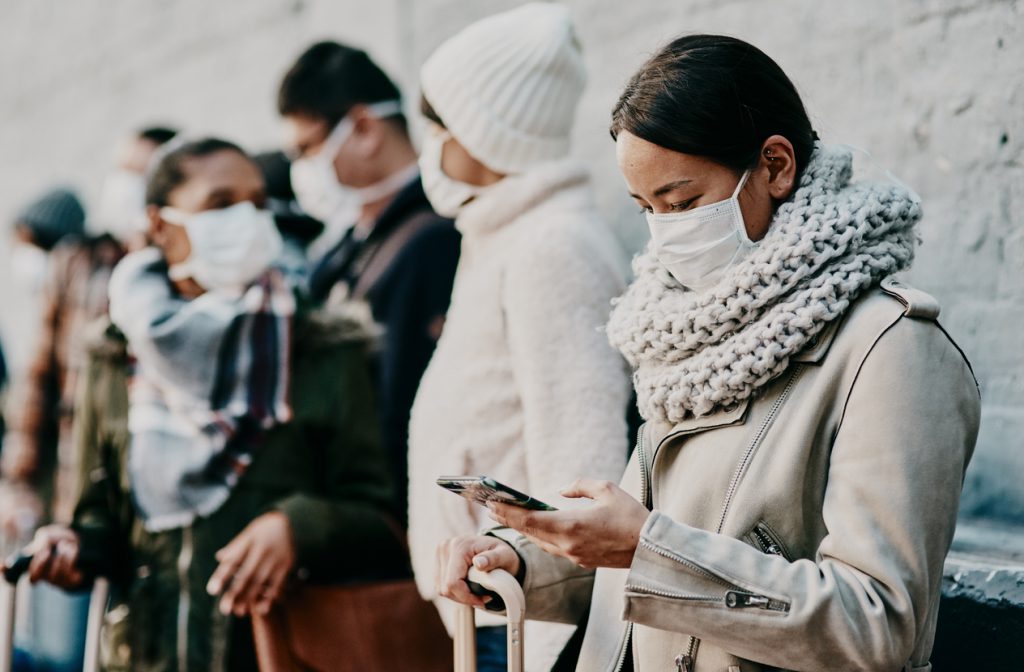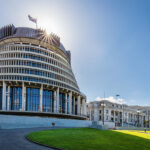Temporary Visa Suspension for Overseas Applicants

Though the COVID-19 pandemic has been the death knell of New Zealand immigration as we know it, it also presents a much-needed opportunity for improvement. What might the new immigration system look like? Aaron Martin, principal lawyer at New Zealand Immigration Law, explains the new rules and their possible ramifications.
Starting 10 August 2020, people outside of New Zealand will not be able to apply for temporary visas for 3 months, with a few minor exceptions:
- Relationship-based visas for partners and dependent children of New Zealand citizens and residents
- Visas for diplomatic, consular, and official staff and accompanying dependents
- Antarctic Traveller Visitor visas and Antarctic Work visas
- Recognised Seasonal Employer (RSE) limited visas
The three-month suspension does not apply to residence-class visa applications, however. Why? These take longer to process so may be less affected by current border restrictions.
When our borders closed back in March, the New Zealand government stopped processing visas for all overseas applicants other than those who met strict exception criteria. Nonetheless, people continued to submit applications expecting them to be processed, creating a huge backlog that triggered the government’s decision to press pause.
In with the new
For better or worse, the old system is now defunct. The question will be whether it resumes in its pre-COVID form once the border resumes normal operations.
Under what we assume will be a Labour government, we can expect the likely reopening of the border to be a staged process with a progressive rollout of further exceptions to border closure, until normal border operations resume (if and when that happens).
The new visa system will be the exception to border closure. Think of it as a door being opened incrementally to certain classes of people whom the government deems necessary according to its priorities at that time.
Immigration New Zealand must manage entry because of managed isolation capacity, and that’s going to be an ongoing, ever-present driver for them. They can no longer operate by the old system of ‘lodge it whenever you want to.’
They’re basically saying, ‘Now we don’t care whether you want to come to New Zealand; it’s whether we want you to come. If we don’t want you to come, and you are not within the class of people we consider essential, please don’t apply or we won’t let you apply.’ As such, the government will instruct INZ to continue to make adjustments to meet the demand it feels it needs to provide jobs for New Zealanders—and meet its own infrastructure goals.
Applications from overseas generate significant government revenue, much of which has been lost with the closing of our borders due to COVID. It may be a year or more before they reopen, so even though it may seem unfriendly, the suspension is entirely practical and appropriate. Otherwise people will lodge applications that INZ is not going to process, and what’s the point of that? They’ll just be clogging up the system.
Potential problems
The thing I do take issue with is the hard cut-off date. Many applicants are still in the process of obtaining police and medical clearance, and if they can’t file them by 10 August, their documents will expire and they’ll be forced to redo them.
Why does this matter? The cost of repeating the required medical exams alone can in some countries be the equivalent of an entire month’s wages, a burdensome cost sometimes greater than the visa application fee. A bigger window to allow people more time would have been the more humane thing to do.
Oh, and another thing: Who gets admitted to the country will often come down to who shouts loudest, and that’s usually the person who’s got the money, whether it’s parties funding infrastructure projects, international students, or people from the entertainment industry.
It’s the petty corruption of New Zealand, who had what cosy dinner with what government minister to get the Avatar movie crew what they wanted. Quiet conversations in corridors like these led to creation of the critical purpose category in the first place: The government was caught with their trousers down, deciding on the basis of backdoor deals instead of open, transparent policies.
Picking who can enter seems to be based on political whim—not a fair criteria
As we move from an employer, education, and tourism-driven system, where applications are motivated by a person’s private desire to come to New Zealand, to a system driven by the government’s perception of need and importance, it’s going to be a case of “it’s anyone’s guess” as to who gets a shot at applying for a visa and gaining entry.
What about work visa holders?
Yet another glaring issue: Still no provision has been made for those who hold work visas but are currently overseas, effectively locked out of the country, given that only citizens and residents can return. The new rules make it clear what the government’s priorities are but fail to address the needs of those building lives in New Zealand.
It’s like the old adage, ‘If you do nothing for long enough, the problem disappears.’ Their job disappears and with it their dream—and for a large number, their residence eligibility. The government incorrectly assumes that unemployed New Zealanders will fill these jobs, but many are either unwilling or unqualified. Or they want to hold out for job opportunities better suited to their skill level, rather than just taking any job that may be available.
The bottom line is, there’s going to be a lot of carnage and a lot of people are going to get burned, specifically people who have work visas and jobs but not residency. Residence cases depend on the applicant having a job and typically take two or more years to conclude while in New Zealand.
Work visa holders have good reason to be fearful that they may lose their ability to acquire residence due to matters beyond their control and as a consequence of government decision-making, despite having contributed to our economy, our country, and investing a lot of time and hard work towards that goal.
As someone on social media put it, “We have been looted by the government.” I can understand that sentiment.
My advice to migrants
What exactly does this mean for applicants? Simply put, if you’re overseas, for the foreseeable future, you’re not coming in until you fall within a class of exceptions.
Now, rather than being driven by the private sector and applicant motivation—that is, whether you wish to come to New Zealand to visit, study, work or live—entry will be dictated solely by government need.
If you’ve already submitted a temporary visa application and are overseas, there is one bit of good news: You can withdraw your application and request a refund.
If you’re thinking about submitting one, don’t bother. It won’t be processed, and you’ll waste money on not only the application itself but also any accompanying documents that expire and have to be redone.
For more news, opinions, and information about New Zealand immigration issues, check out our blog.




